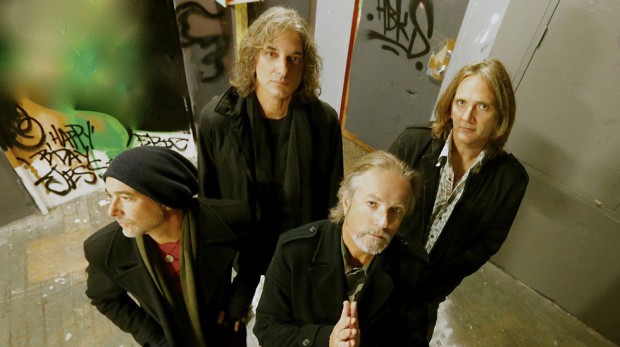
“Whatever I do I, by my very nature, I can be abrasive or distant or stoned or stupid or whatever. I clash with people. But, having said all of that, I find I do my best work when it’s harmonious”
The release of their 25th album, Further/Deeper, sees iconic Australian psych-rock outfit The Church reinvigorated and rededicated to pursuing their often mystifying muse. TRAVIS JOHNSON checks in with singer Steve Kilbey.
As an album, Further/Deeper is significant not just because it’s the 25th one released by The Church, and not just because it’s very, very good (it’s the best thing the band has done since Priest=Aura), but because it really shouldn’t exist – at least according to Steve Kilbey circa 2013, when a dispute over royalties saw the sometimes volatile frontman publicly state that The Church, as a band, were finished.
When we bring this up, Kilbey is chagrined and self-deprecating. “I knew someone was gonna say that,” he says ruefully. “It just seemed like ‘Don’t let the bastards get you down,’ You know? And it was all a bit heated. I guess up until then I was forgetting if I get on my Facebook page and go, ‘This is all bullshit! I quit!’ people are paying attention, they’re going, ‘Wow, he really is quitting.’ and then I had to defend an undefendable position. It was just a childish outburst of frustration considering everything.”
So, long story short, 2013 did not see the end of The Church. Instead, it saw them heading into the studio to record their new album, which was engineered and produced by drummer Steve Powles. It did, however, see the departure – maybe temporary, maybe not – of guitarist Marty Willson-Piper, who has been replaced by Powderfinger axeman Ian Haug.
“There’s been some new blood injected.” Kilbey says of the personnel change, asserting that Haug’s presence was an energising one. “Ian is a lot younger than us and a lot more enthusiastic, actually, when we first started writing this album. He brought a lot of energy. At the same time as supplying energy, he also supplied a kind of a calm and happy feeling around him that was very contagious. You can have kind of bad apples join and spoil a bunch and you can have good apples come in and make it better. His patience and cheerfulness enabled us to really focus on the music and that brought out the best in the other three older guys. It shattered our expectations.”
While The Church has been a tight-knit if often combative group, Kilbey admits to being impressed by how quickly Haug found his groove. “He understood what to do immediately and there was no awkward sitting around while he wondered how we were making music. He immediately understood how we would sit around fiddling with our instruments until a germ of an idea emerges and how everybody would follow that germ. Ian understood that immediately.”
Though Kilbey is happy with Haug’s seemingly calming influence on the group, it’s still axiomatic that creative strife can lead to great art. It has to be asked, does he believe that?
“No, no, no,” he is adamant. “I don’t. I became a musician seeking camaraderie with other musicians, seeking a kind of troupe of players, like a football team, like a band of brothers, and that was very naive. And then – and I must admit that in all the bands I’ve been in I initiated lots of argy-bargy with other members. Whatever I do I, by my very nature, I can be abrasive or distant or stoned or stupid or whatever. I clash with people. But, having said all of that, I find I do my best work when it’s harmonious, when the people… when at least it isn’t kind of angry and tense – that’s when I do my worst stuff. Even when writing a sad song, I prefer to be happy. I like to be happy. If you can give my some sort of satisfactional happiness or at least calmness, then I can sort of create.”